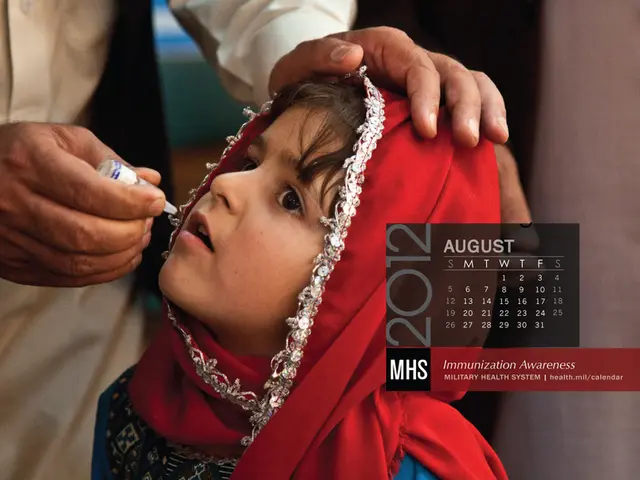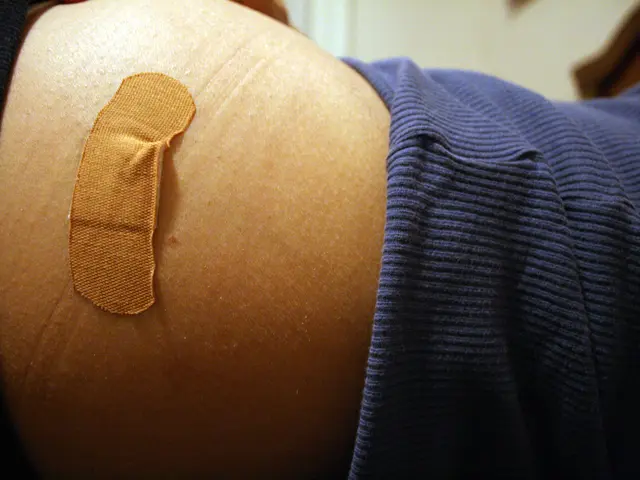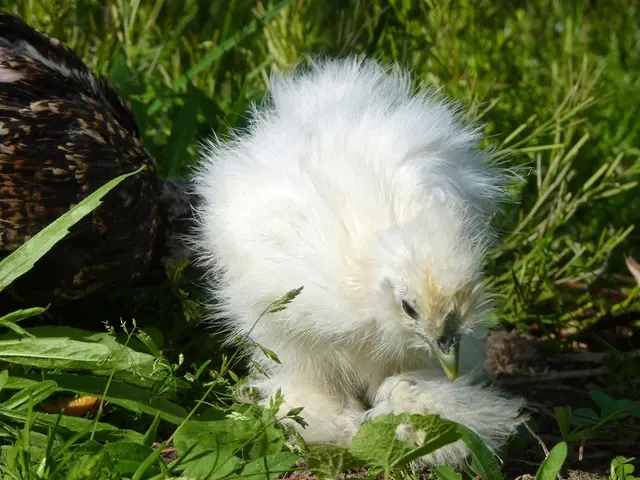Ontario's Mosquito Severity Outlook for Upcoming Season: A Preview of Potential Pest Infestation Levels
Here Comes the Buzz: Ready for the unavoidable summer of pesky bites and humming insects? Well, buckle up, folks! The warmer weather is right around the corner, and with it, the season of itchy skin and annoyed swats.
Though we can't predict the exact course of the 2025 mosquito season just yet, there's a chance it might be a lighter one, thanks to our chilly spring and abnormally dry April. According to entomologists Fiona Hunter of Brock University and Rosalind Murray of the University of Toronto, if we experience another round of the heavy rainfalls we've been having in recent years, we could see a surge in mosquito populations later on in the season.
Quack! Quack! When's Mosquito Season Here?
Overwintering mosquitoes - the ones that either sneakily hibernated or survived the cold as eggs - may start appearing as early as March once the temperatures start to rise, entomologist Rosalind Murray tells us. Mosquito season typically picks up steam in May, and depending on the rainfall and temperature, the bug population will likely peak sometime between late May and early June. Mosquito numbers will gradually decrease in September as the temperatures begin to cool, Fiona Hunter added.
Cases of the mosquito-borne West Nile virus are usually spotted between mid-April and November, as that's when the disease-carrying breeds of mosquitoes are most active.
Will Mosquitoes Have a Field Day in Ontario This Year?
While it's looking hopeful that mosquito season is off to a mellow start this year due to the cold, dry spring, that doesn't necessarily mean we're in the clear. According to the pair, there are two key factors to consider when predicting mosquito activity: temperature and rainfall.
Toronto, on average, gets around 93 millimeters of precipitation in April. This year, however, Toronto was graced with only about 55 millimeters, just about half of the usual amount. This means that temporary bodies of water – common breeding grounds for mosquitoes – dried up, offering less of a place for mosquitoes to breed.
Toronto may also have experienced some mosquito-killing sub-zero temperatures last month, according to Rosalind Murray, which could have impacted those that overwintered as adults. This could result in less mosquito activity in May compared to last year, but cities tend to be warmer than their rural counterparts, which might mean a few more mosquitoes in the city.
Rain, Rain, Go Away...But Not Too Much!
Although mosquito season seems to be off to a sluggish start right now, excessive rain could cause the mosquito population to skyrocket down the line. In 2024, flooding in Toronto led to a wave of West Nile virus-spreading mosquitoes, a scenario the experts warned could repeat itself if we get too much rain this year.
So, how can we protect ourselves from these pesky, itch-inducing creatures? By emptying out any standing bodies of water on our property, of course! Common breeding grounds in urban areas are flowerpots, birdbaths, and clogged gutters.
For added protection, cover up your skin with loose-fitting, light-colored clothing. Mosquitoes are drawn to dark colors, so light fabrics can keep them at bay. You can also slather on a Health Canada-approved insect repellent for an extra layer of defense.
Stay tuned for updates on the 2025 mosquito season, but in the meantime, let's all pray for a mild one!
- Weather forecasts predict a potentially lighter 2025 mosquito season due to the cold and dry spring conditions in Canada.
- In Toronto, the average precipitation in April is around 93 millimeters, but this year, the city only received about 55 millimeters, potentially reducing mosquito breeding sites.
- Toronto's cold weather last month may have affected overwintering mosquitoes, potentially leading to less mosquito activity in May compared to last year.
- However, cities tend to be warmer than their rural counterparts, which might mean a few more mosquitoes in urban areas like Toronto.
- If Toronto experiences excessive rainfall, it could lead to a surge in mosquito populations later in the season, as entomologists Fiona Hunter and Rosalind Murray have warned.
- Mosquito season in Toronto typically begins in May, with the population peaking between late May and early June.
- West Nile virus cases are usually spotted between mid-April and November, when the disease-carrying breeds of mosquitoes are most active.
- To protect ourselves from mosquitoes, we can empty standing bodies of water on our property, wear light-colored, loose-fitting clothing, and use Health Canada-approved insect repellent for added protection.








